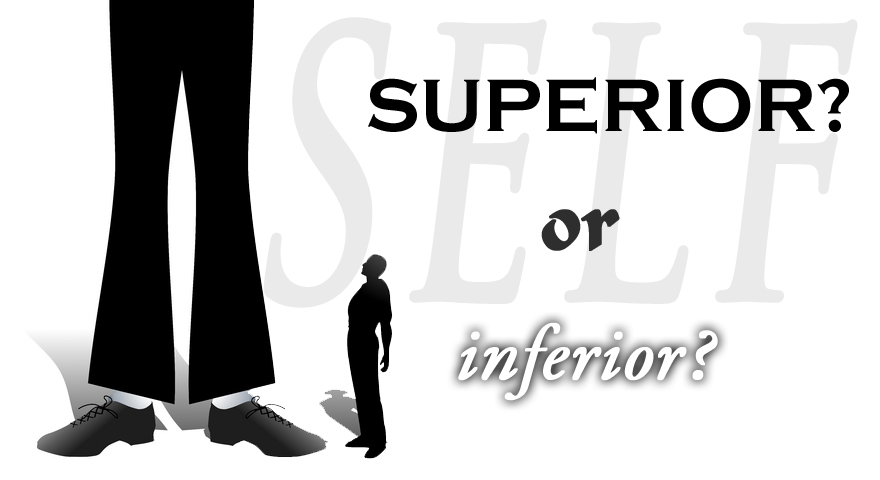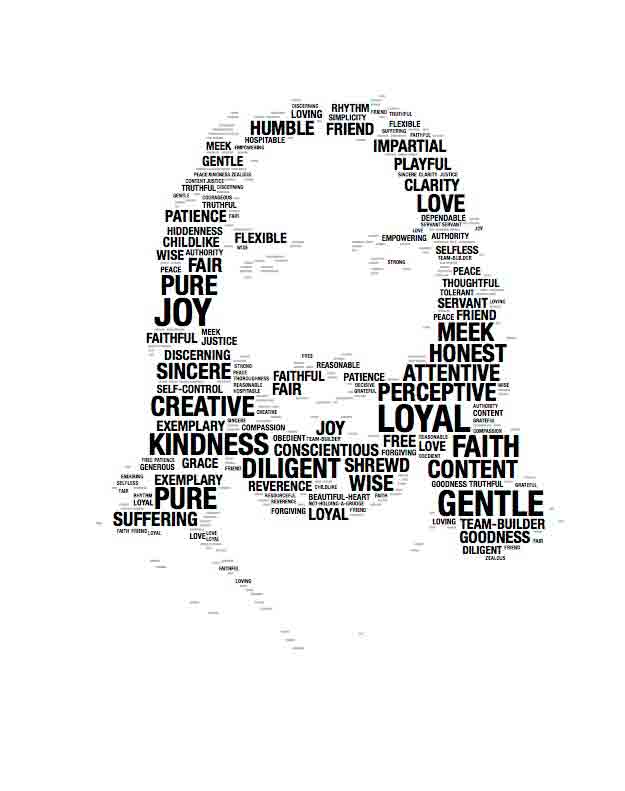Love and honor God’s Judgments
We live in an age where the following statement has never been more accurate and relevant; “everyone did what was right in his own eyes” Judges 21:25 We have more information availible than ever yet people appear to be entirely ignorant of their lifestyle decisions, and it’s consequences. Our alienation from God and Truth has set us onto a course of deep darkness.
The sad truth though is that many Christians and believers are also just as ignorant of their behavior, habits, and incompetence in certain areas. This ignorance became very apparent to us in our recent encounters to Uganda. These are beautiful people, but they are totally ignorant of their incompetence in the workplace. Maybe in some way this is a good thing, for ignorance is bliss. Samuel Lwandasa, who have lived in the USA for more than 15 years relayed a little story to explain the problem with Africans. One man has five cows, he is very proud and feels like a wealthy man, because his neigbor only has two. Not realizing there are people who have more than thousand cows.
Against this backdrop of Earthly reality, I see in the scriptures an incredible hidden truth.
David loved God’s Judgments!
Psalms 18:22 For all His judgments were before me, And I did not put away His statutes from me.
Psalms 19:9-10 The fear of the Lord is clean, enduring forever; The judgments of the Lord are true and righteous altogether. 10 More to be desired are they than gold, Yea, than much fine gold; Sweeter also than honey and the honeycomb.
Psalms 36:6 Your righteousness is like the great mountains; Your judgments are a great deep; O Lord, You preserve man and beast.
David sings a song on God’s Judgments, about how he loves it! Psalms 119:7, 13, 20, 30, 39, 52, 62, 66, 75, 102, 106, 108, 137, 156, 160, 164, 175
Loving Judgements is a difficult concept to comprehend at first; most children writing exams surely cannot agree that they love it! We as adults are not far behind; we’re just happy that we do not have to write them anymore. An interesting read on the subject is the study done by Justin Kruger and David Dunning.
People tend to hold overly favorable views of their abilities in many social and intellectual domains. The authors suggest that this overestimation occurs, in part, because people who are unskilled in these domains suffer a dual burden: Not only do these people reach erroneous conclusions and make unfortunate choices, but their incompetence robs them of the metacognitive ability to realize it. Across 4 studies, the authors found that participants scoring in the bottom quartile on tests of humor, grammar, and logic grossly overestimated their test performance and ability. Although their test scores put them in the 12th percentile, they estimated themselves to be in the 62nd. Several analyses linked this miscalibration to deficits in metacognitive skill, or the capacity to distinguish accuracy from error. Paradoxically, improving the skills of participants, and thus increasing their metacognitive competence, helped them recognize the limitations of their abilities. 1
I also remember a most interesting TED talk, we reviewed in BibleSchool class on Being Wrong by Kathryn Schulz. https://youtu.be/QleRgTBMX88 She explained how like the Wolf in the Road Runner animation, we run over the edge believing we can walk on air, to then suddenly realize we’re dead wrong. We all have moments like this, and it is what makes us human. The problem is when decision makers are wrong and want others to believe their error. Not knowing I am wrong, is possible one of our biggest handicaps.
Seek criticism from friends and peers
Elon Musk explains in an interview about Starting up a new business on how important it is to seek Criticism. 2 He calls it “rigorous self-analysis.” Obviously, you should ignore the ignorance of people that do not understand your cause and is just sowing doubt and unbelief. Learn and attract criticism from your friends, invite them to speak into your life. Make yourself vulnerable. Prayerfully extract the gold from every criticism, reproof, rebuke, admonishment, exhortation that comes your way. Say thank you, the person correcting you is taking a significant risk, and a show of courage to point out a possible error.
Peer review analyses: Because it ‘s hard for most professionals to recognize and improve on their weaknesses on their own, aviation has developed structured mechanisms of check questions to a relative peer. Like flight attendants checking each other on door closing procedures, Pilots going through checklists with Co-pilot etc, and flight crew awareness of problems reported to the captain. This system was only introduced after the fatal crash of Trans World Airlines (TWA) Flight 514, a Boeing 727 inbound from Columbus, Ohio, that was scheduled to land at Washington National Airport. The crew had flown a normally functioning Boeing 727 aircraft into a hill at an altitude of 1669 feet, just short of the hill’s peak of 1764 feet. The 85 passengers and seven crew members died in a horrific fiery crash 29 miles northwest of Dulles International Airport. Human error and Pilot’s misunderstanding each other was the cause of this accident.
How many people have suffered terrible harm because of the absence of correction in the offender’s life?
Elite athletes, musicians, and other top performers understand that excellence occurs through extensive study and practice, with constant feedback, and by adopting techniques and tools that have led to others’ success. For elite performers, this extends well beyond the formal training period. (An entire scientific discipline is devoted to this topic, as detailed by Ericsson 34.)
Maybe this is why Weigh-less is so successful in helping people loose weight, the weekly weigh-ins. The AA has sponsors. Covenant eyes provide a accountability software program for Internet Porn Addicts, where you share your online traffic with a partner.
Take regular tests, to evaluate your ability, performance, and development.
Examine yourselves as to whether you are in the faith. Test yourselves. Do you not know yourselves, that Jesus Christ is in you?—unless indeed you are disqualified 2 Corinthians 13:5. Doing inward self-analysis is fruitless and futile. Paul says that he does not even judge himself. 1 Corinthians 4:3. Judgment has to be external. Our own hearts are too deceptive. Jeremiah 17:9.
The Word and the Spirit is the perfect Judge
Jesus learned His judgment from the Father. Do not trust your own judgment, seek His judgment. John 5:30 I can of Myself do nothing. As I hear, I judge; and My judgment is righteous because I do not seek My own will but the will of the Father who sent Me. John 7:24 Do not judge according to appearance, but judge with righteous judgment.” John 8:15-16 You judge according to the flesh; I judge no one. 16 And yet if I do judge, My judgment is true; for I am not alone, but I am with the Father who sent Me.
The more we Study the Word, the better we can judge. The Word is a discerner. Hebrews 4:12. Like not judging a matter by the first testimony, cross-examine and then make a conclusion. Proverbs 18:17.
David made several prayer requests to God to search Him, test Him and examine him. Search me, O God, and know my heart; Try me, and know my anxieties; And see if there is any wicked way in me, Ps 139:23
The judgment of the Father
In recent times so many worship songs focus on loving God, and His amazing enduring love for us. Although this is important, yet the context of our relationship is always explained in terms of that of a disciple, a bond-slave, a child, a friend. Even our love is contextualized: if you love me you will obey my commandments. John 15:10 If you keep My commandments, you will abide in My love, just as I have kept My Father’s commandments and abide in His love.
We do not fear His judgment because of His perfect love. 1 John 4:17-19 Love has been perfected among us in this: that we may have boldness in the day of judgment; because as He is, so are we in this world. There is no fear in love; but perfect love casts out fear, because fear involves torment. But he who fears has not been made perfect in love. We love Him because He first loved us. Love is made perfect through obedience. Hebrews 5:8.
Having God as our Father, does not only mean we are now protected, He will take care of everything. It means He will correct us, chastise, and rebuke us if nessasary.
And you have forgotten the exhortation which speaks to you as to sons:
“My son, do not despise the chastening of the Lord,
Nor be discouraged when you are rebuked by Him;
For whom the Lord loves He chastens,
And scourges every son whom He receives.”
If you endure chastening, God deals with you as with sons; for what son is there whom a father does not chasten? But if you are without chastening, of which all have become partakers, then you are illegitimate and not sons. Hebrews 12:5-7
See Prov 15:31-32 Today’s scripture reading…









